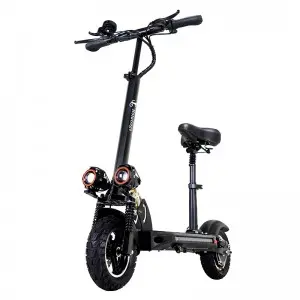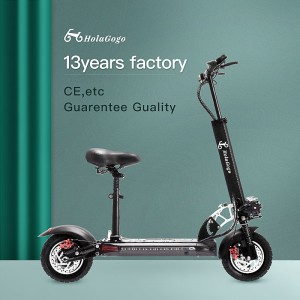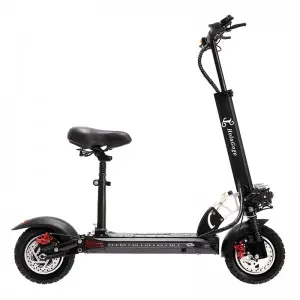Electric scooters have become a popular mode of transportation for many people, offering a convenient and environmentally friendly way to get around town. They come in various shapes and sizes, but one common question that arises when considering purchasing a two-wheel electric scooter is, “How much weight can it hold?”
The weight capacity of a two-wheel electric scooter can vary depending on factors such as its design, motor power, and construction materials. In this article, we will delve into the key considerations that determine the weight capacity of a two-wheel electric scooter and provide some general guidelines for choosing the right scooter based on your weight and transportation needs.
Understanding Weight Capacity
The weight capacity of a two-wheel electric scooter refers to the maximum amount of weight that the scooter can support while in operation. This includes the weight of the rider as well as any additional cargo or accessories that may be carried on the scooter. Exceeding the weight capacity of a scooter can lead to decreased performance, increased wear and tear, and even safety hazards, so it is crucial to consider this specification when selecting a scooter.
Factors Affecting Weight Capacity
Several factors contribute to the weight capacity of a two-wheel electric scooter. These include:
1. Motor Power: The power of the scooter’s motor is a key factor in determining its weight capacity. A more powerful motor can support higher weights more efficiently, providing better acceleration, climbing ability, and overall performance.
2. Frame and Construction: The design and construction of the scooter’s frame, chassis, and components play a significant role in determining its weight capacity. A sturdy and well-built scooter can support heavier loads more effectively than a flimsy or poorly constructed one.
3. Battery Capacity: The scooter’s battery capacity and voltage can influence its weight capacity, as they affect its overall power output and performance. A scooter with a larger and more powerful battery may be better suited for carrying heavier loads.
4. Suspension System: The suspension system of the scooter can impact its ability to support weight comfortably and safely. A well-designed suspension can help distribute the weight more evenly and absorb shocks and vibrations, enhancing the overall riding experience.
Weight Capacity Guidelines
When it comes to selecting a two-wheel electric scooter based on weight capacity, there are some general guidelines to keep in mind:
1. Rider Weight: Most two-wheel electric scooters are designed to accommodate riders weighing between 220 and 330 pounds (100-150 kg). However, it is essential to check the specific weight capacity of the scooter model you are considering to ensure it can support your weight comfortably.
2. Cargo and Accessories: If you plan to carry additional cargo, such as a backpack, groceries, or other items, it is advisable to factor in this weight when considering the scooter’s capacity. Some models may have designated cargo space or attachment points for carrying extra gear.
3. Intended Use: Consider how you plan to use the scooter and whether you anticipate carrying heavy loads regularly. If you have specific transportation or utility needs that require a higher weight capacity, be sure to select a scooter that can meet those requirements.
4. Safety and Performance: Exceeding the weight capacity of a scooter can compromise its safety and performance, leading to reduced battery life, slower acceleration, and diminished handling. It is crucial to prioritize safety and ride comfort by selecting a scooter that can support your weight within its specified limits.
Choosing the Right Scooter
When comparing different two-wheel electric scooters, it is essential to consider the weight capacity along with other key features and specifications. Look for models that align with your weight, transportation needs, and intended usage, and consider factors such as motor power, battery capacity, and construction quality.
It is also beneficial to read user reviews and seek recommendations from experienced scooter riders to gain insights into the real-world performance and weight capacity of various scooter models. Additionally, consulting with knowledgeable retailers or manufacturers can help you make an informed decision based on your specific requirements.
Conclusion
The weight capacity of a two-wheel electric scooter is an important consideration when selecting a scooter that can support your weight and provide a safe and enjoyable riding experience. By understanding the key factors that influence weight capacity and following general guidelines for choosing the right scooter, you can make an informed decision and select a scooter that meets your transportation needs.
Whether you are a daily commuter, leisure rider, or someone in need of a reliable and efficient mode of transportation, choosing a two-wheel electric scooter with the appropriate weight capacity will help ensure a comfortable and satisfying riding experience. Be sure to research and compare different scooter models and consult with experts to find the best fit for your specific needs and preferences.
Post time: Feb-23-2024




